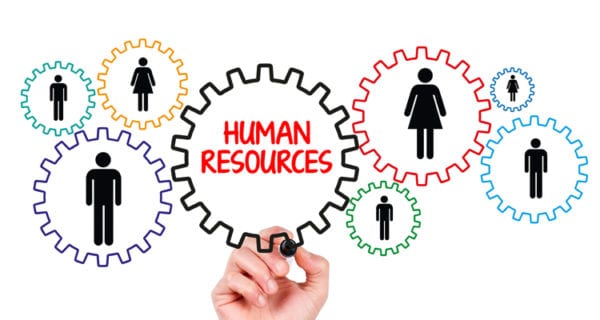
Finding all the paperwork in your business a hassle? Struggling to keep up with the mountain of management associated with employing people that isn’t directly related to the work they’re doing for you? Then you might want to consider a professional employer organization (PEO). A PEO essentially takes over the HR functions of a business leaving the business owner free to focus their efforts on their business.
What Does a PEO Do?
PEOs typically tackle all the standard HR and employee related tasks associated with running a business. You can often pick and choose from a menu of services; outsourcing the stuff you don’t want to deal with and holding on to things you do. A typical range of services should include:
- Generic HR management for the business
- Administering employee benefit programs
- Setting up and monitoring safety programs (OSHA)
- Training and development of staff
- Recruitment of staff
- Government compliance as required
- Dealing with employee health insurance
- Section 125 planning
- Handling the payroll including processing
- Ensuring that State Unemployment Insurance (SUI) tasks are handled correctly
- Administering 401 (k) retirement plans for the business
- COBRA management and compliance
- Delivering workers’ compensation
PEOs aren’t a completely outsourced service instead they operate under a co-employment arrangement. That means they take a share of the risk for failure in HR processes – which can be useful to give you peace of mind when it comes to handing over this crucial business function.
Costs vary based on your business and the type of PEO service you choose to engage. You may find some want a “price per employee” arrangement and others may charge a flat fee or a percentage of payroll.
What Are the Benefits of Using a PEO?

There are many benefits of using a PEO arrangement but the main benefits which are consistent from business to business are:
- A lower level of administrative burden. The PEO handles all or most of the paperwork surrounding employees which takes a big chunk of work away from the core business and allows for the owner or managers to focus on what really matters to their business.
- An improved level of employee benefits. One nice advantage to using a PEO is that they can combine the purchasing power of many small businesses to deliver better benefits packages than they could gain by themselves. This can help you compete for talent and to retain talent for your organization.
- A better guarantee of legal compliance. PEOs are experts in HR matters and because of the risk-assuming arrangement they work under; they’re more likely to ensure that the I’s are dotted and the t’s are crossed to ensure legal compliance. Mistakes may still happen but they’re much less likely with a PEO.
- Reduced costs. Of course using a PEO costs money but they may be able to claw back some of the money you spend on insurance and benefits because of their increased reach and bulk buying powers. You’re unlikely to come out ahead on these costs vs the cost of the PEO but they can offset the cost of using a PEO to some extent.
- Additional legal protection. Most PEOs will deliver liability insurance as part of their offering that protects you in the case of being sued for wrongful termination and for discrimination claims too.
- Improved talent acquisition. If your PEO can enhance the overall benefit package to your employees – then you’re going to be a more attractive employer to work for.
What Are The Drawbacks to Using a PEO?

Let’s not pretend that everything about outsourcing your HR is perfect. There are some drawbacks to using a PEO too:
- A reduction in control. When a PEO takes over the HR function; somebody within the business loses control over that function. This can take a little time to get used to – particularly if the HR role has been a big chunk of somebody’s day-to-day work. Make sure that if you decide to go this route that the person who has handled responsibility for HR in the past is given time to adjust to the idea and has some involvement with the handover too.
- Regular switching of health insurance providers. PEOs are there to help save you money on expenditure in the HR area – it’s part of how they demonstrate their overall value to your bottom line. This means they’re always hunting for better deals on health insurance. If you use a PEO; you’ll want to ensure they have a robust communication process in place to ensure your employees are kept in the loop. Messing with people’s insurance can really demotivate them if it’s not handled properly.
- Loss of the personal touch. When you use a PEO; you are one of their clients but not their only client. That means their team might have to deal with dozens of businesses and that means there’s going to be less “personalization” than an HR service offered in house. You should keep a careful eye on this in the first part of an arrangement and make sure your staff have someone in-house who they can go to if they feel their needs aren’t being met.
Some Criteria For Choosing the Right PEO
If you want to make sure you pick the right PEO for your business, if you do decide to outsource, you’ll want to examine the following with the candidates for providing the service:
- Can the PEO support your business as it grows?
- Is their service bespoke and designed for your business or is it generic?
- Can the PEO demonstrate they’re properly trained and informed on all the regulations affecting your business?
- What’s the total cost of the service based on the business today and the projections for the long-term?
- Can the PEO provide references from satisfied clients?
- Does the PEO have a strong financial position?
- What kind of service and support do they offer?
- Are they accredited by an official body? What level of accreditation do they hold?
- Do they have a license to operate (if your state requires such a license)?







